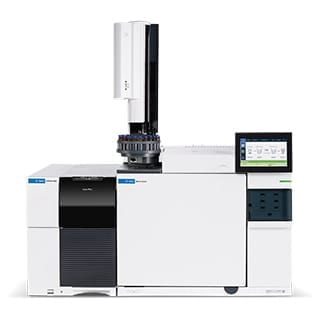Instrument Hub
GC-MS is used for the detection, identification, and quantification of small, semi-volatile and volatile organic compounds.
Overview
Ideal for targeted compounds or metabolomics methods desired, study design: replicates, quality control samples, positive and negative controls, randomisation. High throughput, reproducible, easy to use, qualitative and semi-quantitative or quantitative data.
Features
-
-
- Current derivatisation methods include: Fatty acids methyl esterification, methyl silylation, methyl chloroformate derivatisation (organic and amino acids).
- solid phase micro-extraction.
-
Software
Analysis for GC-MS data is supported by the following software:
- Wiley Nist 2017 Mass Spectral Database (>1 million EI MS, 20K MS/MS)
- MassHunter
- Chemstation
- AMDIS
- NISTMS
- MassOmics
- R
- Python
- ChemOffice
Access to the above software is available on the Metabolomics (GC-MS) Virtual Machine.
Support
Email Saras Green and Jin Wang for all enquiries related to the GC-MS.
Considerations
- Small, volatile or semi-volatiles molecules only.
- Generates large data, requires proper documentation, backups and storage by the user.
- No guarantees provided for archiving data once collected by user.
Limitations
We are not an accredited lab so any findings cannot be used as official diagnostic tools, food safety measures, or quality assurance testing.
Cost
The cost varies depending on task and support level required. Current user costs are listed in iLab booking system.
Eligibility
Post-graduate Students, Doctoral Candidates, Research/Academic Staff, Collaborators (external to the University), Commercial entities.
Access Requirements
The GC-MS facility is housed on the Main Campus in the School of Biological Sciences.
Training
Training can be booked through the iLab booking system
Booking
Trained users can book GC-MS analyses through Auckland Science Analytical Services (ASAS) iLab booking system. Users and their principal investigators or research group need to first have accounts in the iLab booking system. Instructions, details and FAQs on how to sign up to iLab can be found on the ASAS website.

